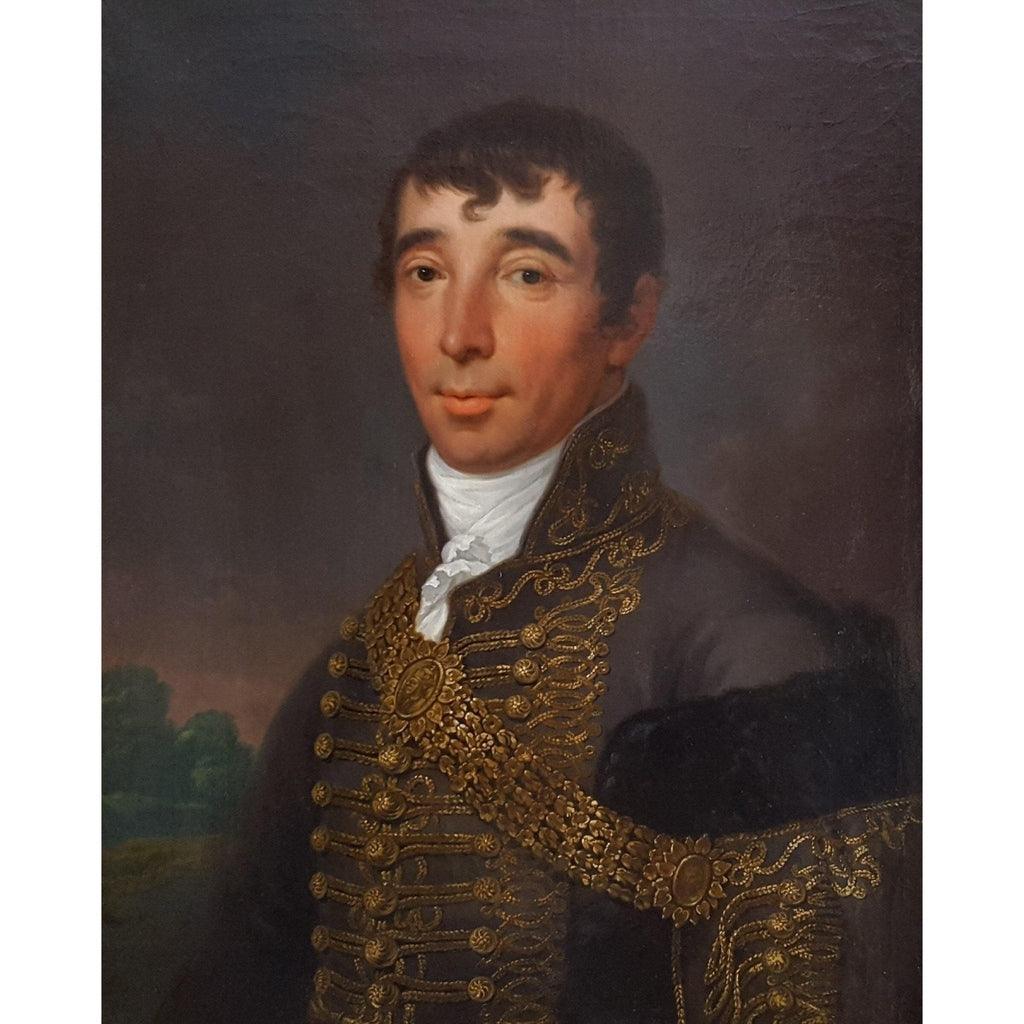
János Donát - Hungarian Nobleman in Uniform - 1812
Share
This fine portrait depicts a handsome dark-haired nobleman dressed in a hussar military uniform. We have so far been unable to precisely identify the subject but our research suggests he is of Austro-Hungarian origin and almost certainly a civilian, perhaps an important landowner. The subject is standing in an open field with trees and shrubs in the background. He is wearing an ornate hussar cavalry uniform. The open-necked dolman is blue-grey and richly embroidered on the collar and down the front. There are three rows of stamped gold buttons with a spiral floral motif and braiding around the buttonholes. The pelisse, edged with black sheepskin, is similarly ornate with gold embroidered cording and braided button hoops. The pelisse is attached to the subject's left shoulder by a wide braided ornate gold chain instead of the usual cords. On this chain there are two medallion clasps in the shape of sunflowers, each with a figure portrait at their centres. The figure on the larger medallion wears the Holy Crown of Saint Stephen, the crown of the Hungarian Empire. The figure at the centre of the second medallion could depict the artist himself. Our subject also wears a braided gold cord belt around his waist and a white cravat.
Although the type of uniform in this portrait does bear a strong resemblance to the K.K. Hussars regiment n° 1 – Kaiser Franz II (Emperor’s Hussars), the level of fine cord embroidery, the ornate chain, medallions and stamped gold buttons all lead us to believe this is a civilian gala uniform. Two of his works in particular, the portrait of poet Daniel Berzsenyi painted in 1817 and that of composer and gypsy virtuoso János Bihari painted in 1820, also represent members of Hungary’s high society dressed in hussar uniform.
Artist: János Donát (1744-1830).
Signed and dated Donat p. 1812 on lower left-hand side.
Technique: Oil on canvas.
Condition: Very good condition. Recently restored and re-lined.
Dimensions: 50 x 62 cm. / 19.7 x 24.4 in.
Frame: 61 x 72 cm. / 24 x 28.3 in. Gilt wood, Empire period.
Origin: Austria.
